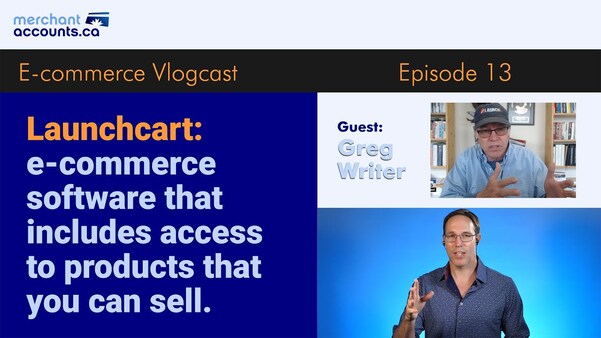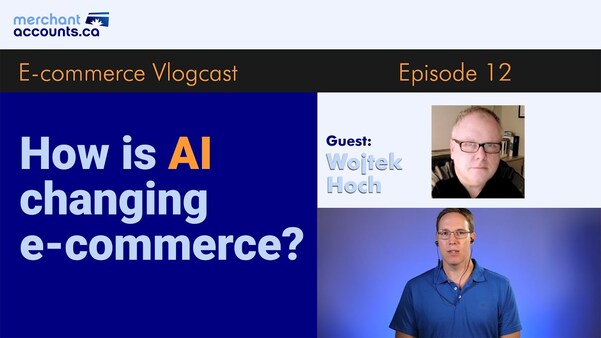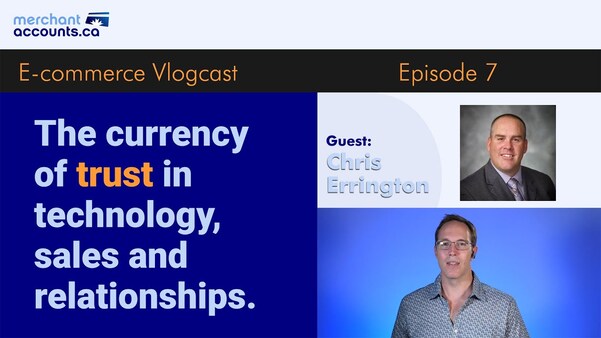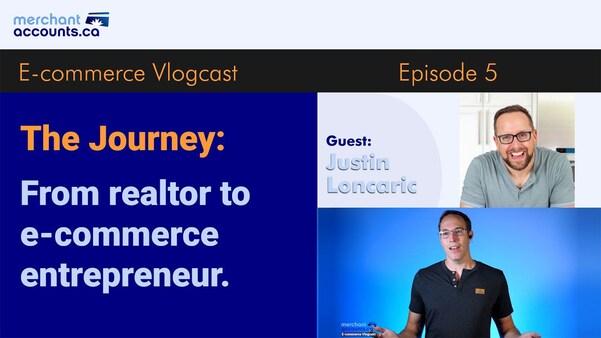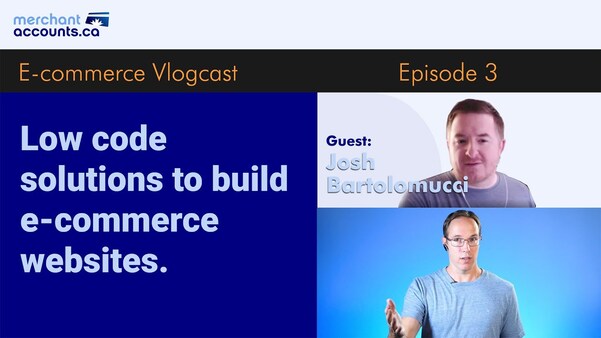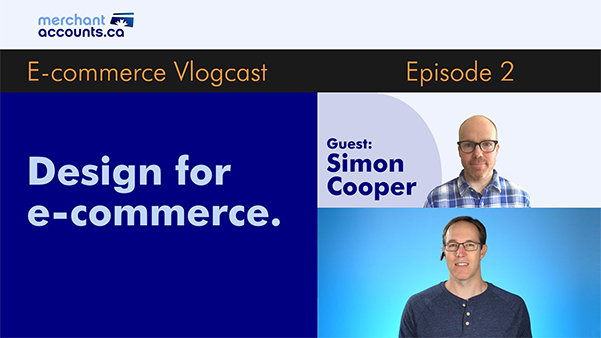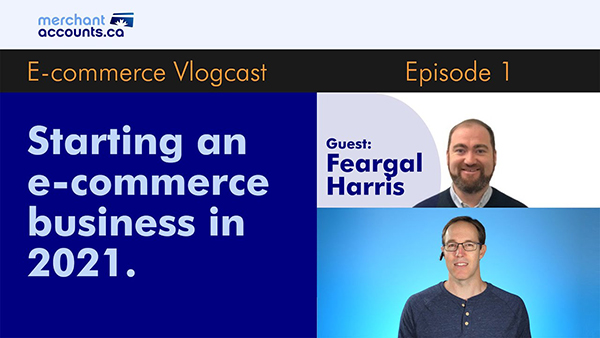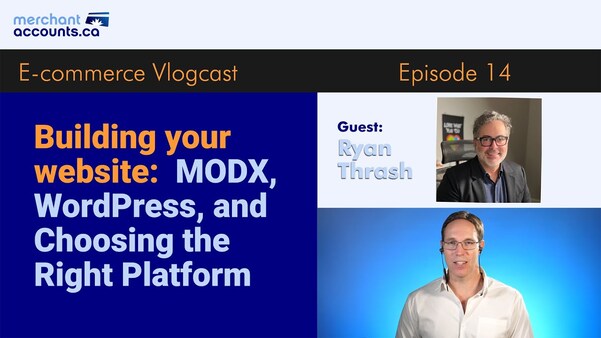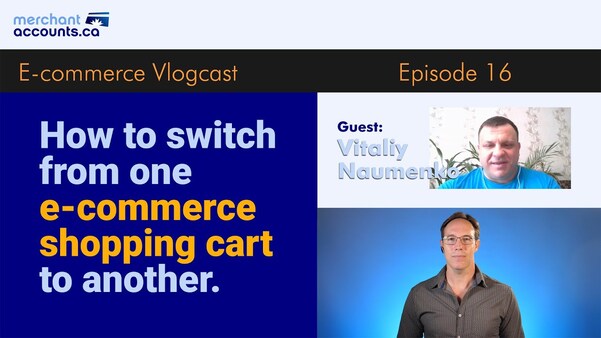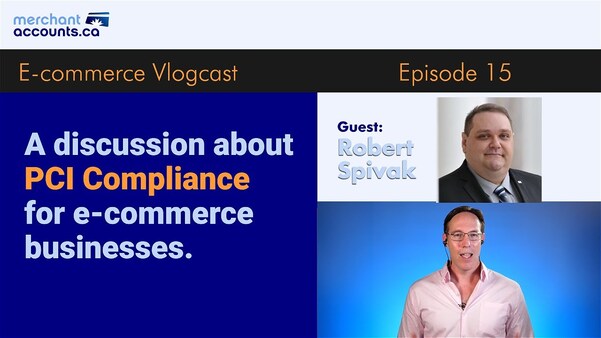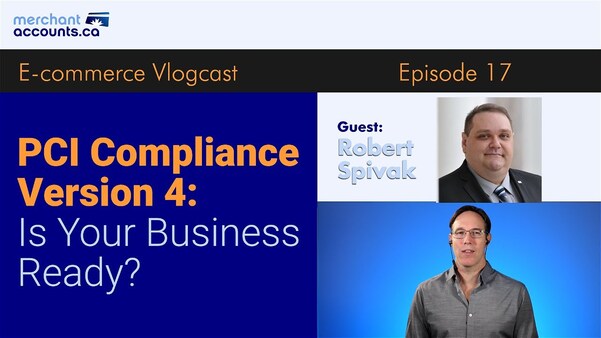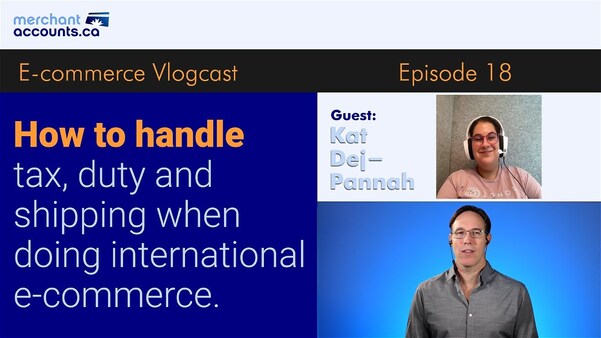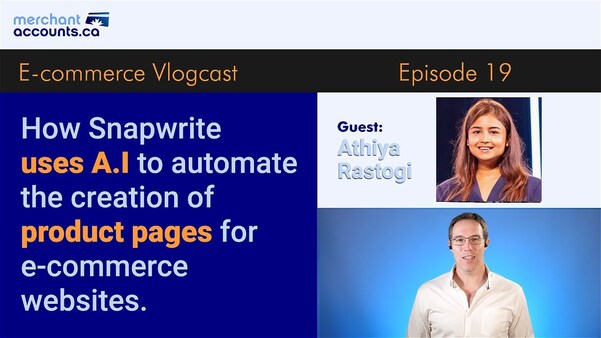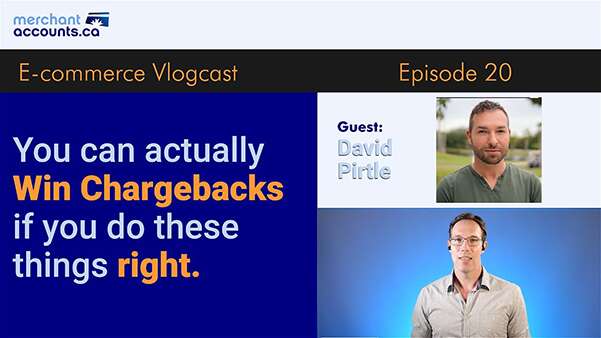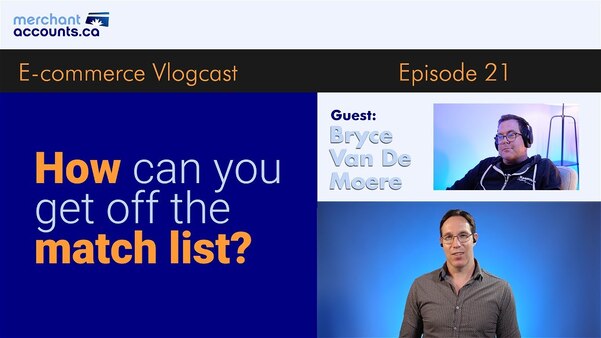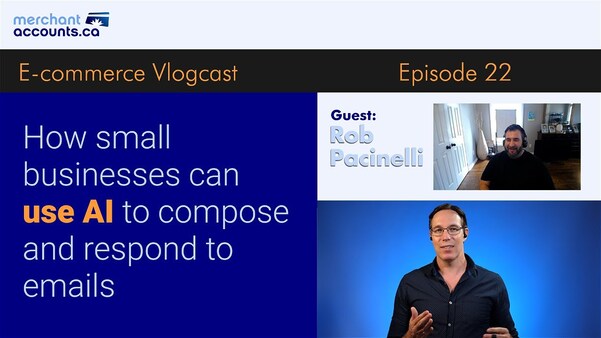April 06, 2022
by David Goodale
The difference between advertising, marketing and sales. How to win the customer buying journey
(Slightly edited from video transcript for greater readability)
David Goodale: 00:03
Hello, David here at Merchant-Accounts.ca with another episode of the vlog today, we're going to talk about ways to make your customers aware of you about how, how it ties to converting leads into sales and related things. What's the one thing that a business needs in order to actually be a business. And I'm talking about the thing that it needs customers without customers, you don't have a business. You just have a lonely place where you accrue bills and wish you add customers. So I'm really looking forward to this conversation today. We're talking to Keith Walters from Mad Ads Interactive and Ad Caffeine. Keith has many years of expertise in sales and marketing. Hi Keith, thanks for joining today.Keith Walters: 00:41
Thank you very much, David. You're making me sound old already.David Goodale: 00:46
So you have quite an interesting skill set, a bunch of interconnected things, advertising, marketing, media buying. I don't know how to untangle all that. Having a skillset that's connected between advertising and sales, how to advertising sales go together. It's an interesting concept. It seems obvious, but a lot of people don't think about that actually.Keith Walters: 01:09
Yeah. It's well, it's essentially one thing that we talk about a lot with, with all of our clients who could be media companies themselves or local businesses. What we talk about is, is a, is a consumer buying journey which we all go through for every single thing that we buy could be a car, or it could be batteries could be large or small. And in, in when you want to get somebody to buy something that you have, you have to let them know that you exist and you have to be present throughout particular journey for whatever it is that you do. So essentially advertising helps to get people into your funnel, which ultimately when you have people in your funnel, they convert into sales at some point. So that's, that's how advertising really correlates to sales.David Goodale: 02:01
Interesting. And what's the delineation between advertising and marketing.Keith Walters: 02:07
Yeah. So marketing is essentially, you could look at it like your, your overall strategy. So you, you, yourself, you have a logo you have a website, you, you have reps. All of that combined is the overarching marketing plan. Even your color scheme, the fonts that you use and your emails, all that kind of stuff. That's all your marketing advertising is really the way to put that out there. So advertising is essentially what we would, would call a push vehicle. So you would, you would push your message in your marketing plan out. It's a tactic that you use as part of your overarching strategy, which would be the market.David Goodale: 02:49
Okay. So the, so the advertising, I dunno if this is right, but the advertising is how you execute or maybe it's a part of how you execute your marketing strategy. Is, is, is that an accurate summary? KindKeith Walters: 03:01
Of. Yeah. So if you have, like, if you imagine you have your, your entire company has an image or should have an image that you're trying to portray, right? So there's you, you're a big part of your, your image. There's Jennifer, big part of your image. You have a logo, you have certain fonts you're doing this, this what do you call it again? Vlog, vlog cast. Tough. Tough to say.David Goodale: 03:27
I might have invented that word, actually. I'm not even sure if that's real thing, but that's what I'm calling it.Keith Walters: 03:33
I like it, man. I'm going to use it from now on. I'll give you credit the first time, but then I'm just taking it. Like it was my own. So I've no I've said it on camera. I've read it. Yeah, no problem. So essentially like all of this, that, like, if we take, if we take your, your company as an example, everything that you do is part of your marketing plan. Anything that you do in terms of forwarding your image you know, how things look, basically the communication that you have, essentially, what it does is it injects it into people's lives. So if you have a group of people that you're looking for, so in your case, you're looking for, for businesses to use your merchant to account services, you basically use advertising to say, Hey, here we are. And here's why you should do business with us. It's the thing that actually puts you in front of the people that you're looking to do business with everything else in terms of what you say, how you say it, how you look, that's all part of the marketing plan. Advertising is simply one, one what's the word I'm looking for? Facet in that entire overarching plan,David Goodale: 04:41
I guess, to do any of these, the things effectively, you have to have an understanding of all, like, what's the point? And I was thinking about this,becauseI actually read your profile on LinkedIn before, before like the other day. And it occurred to mebecauseit's so obvious when I read it, but what's the point of bringing in a whole bunch of leads and then not having a sales strategy to, to capitalize on some thing that, that you just built. So I, is it in an organization like, you know, nobody's an expert on everything I is there normally I don't even know the question I'm trying to ask. It's like, it seems to me sewing these to, even if you do any one of these three things, advertising, marketing in the sales, you do any, every, any one of them really well, but if the other ones aren't what's, what's, what's the word like done effectively. You're not going to get the best result possible.Keith Walters: 05:34
That's a hundred percent correct. So all of that, everything kind of ties into each other. So you have your marketing plan, right? So first of all, like in rewind for two sec, so essentially you have your business model, right? So if the business model is terrible, the whole thing is shot, right? I I've worked with lots of right. People who have started their own companies and they have a fantastic idea and there's no idea how to monetize it, right? It, so there's an entire, there's an entire business model that has to be in existence. Number one, number two. So let's say you have a great business model in itself. Number two is you have to have a good marketing strategy. You have to appealing to the people that you're trying to appeal to. You have to have the right things to say, you have to say them the right way.Keith Walters: 06:23
You have to have the right, you know, as something as simple as a color scheme, the, the, the artwork that you put forth, it all has to kind of come together. That's your marketing plan. Then when you do your advertising and say, Hey, this is who we are. Check us out. This is our voice. This is our look. This is our brand. That's great. So people turn around and they notice you. And they say, this is I, I like what I see. But then you have to have the capacity to basically bring them to the altar and have them say, I do marketing and advertising in and of themselves, right. Are designed to get people, to notice who you are and give them a reason why they should do business with you, but it doesn't sign the contract. And that that's actually, it's, it's an interesting point that a lot of people have confused. They look at advertising to sales, make sales for them, but the sales actually happen once they get to the end of the funnel that I keep talking about, and you have somebody on your end that says, let's do business. This is how you should do business. And here's how we're going to make it easy for you to do business with us. So you're absolutely correct. If one of those elements is missing, you're not going to be as effective as you possibly could.David Goodale: 07:34
Keith, one of the things that I'm curious about is how does a business identity identify the problems it could be in its sales process or in its marketing or it's advertising. If you have a client that hires you on, how do you go helping them to identify what's not working for them?Keith Walters: 07:49
Yeah. So that's a great question, David. And the, and the number one thing to do for anyone is to simply to ask them one of the, the challenges that we see with many of the salespeople that we work with throughout north America. Well, I, I would say almost even the majority of salespeople that we work with, they they're, they're completely focused on telling the business that they're trying to help all about how they can help that business, as opposed to asking the business what their problems are and then finding ways that their solution can actually tie in with the problems that the business has themselves identify. The other thing that that many salespeople do is they go in and they tell people, they tell the business partner, this is what all the other businesses that I work with are experiencing. So you must be having the same problem.Keith Walters: 08:41
So here's our solution to that without letting them get a word in edgewise, fact of the matter is the problem really only exists to a business if they themselves identify that it's a problem, we can't go and suppose that somebody has a problem just because somebody else that we're working with has such a problem. So I, to, to summarize the best way to figure out what problems or challenges a business is having is to ask them where, and essentially I have three questions, how is business as it currently stands? Where would you like to be in 12 months from now? And what's getting in your way of hitting that 12 month goal. And with those three simple questions, you can get a wealth of knowledge about what their pain points are.David Goodale: 09:22
That that's really interesting. You know, I'm going to, I'm going to talk a little bit about one of my own experiences for, for a second here. I think it's related to what you just said. Maybe it's not, but, so I have redesigned our homepage many times over any many, many years, and I do have a background in internet marketing. That's what led me to launch Merchant-Accounts.ca like 20 years ago. And over the years, I feel like I may have made a mistake and that I've taken advice from people who are not marketers. So in, in other words, it's like when I'm doing a new homepage, I actually, I'm going to a funny story. I'm going to go off on a tangent for a second here. Many years ago, I'm going back like 18 years or something. I wanted to sell a physical product because I helped businesses take payment payments online, like e-commerce, but I had never sold a physical product.David Goodale: 10:11
And when I was a lot younger, I was a gamer and I wanted a really comfortable beanbag chair, like a huge bag chair that would be comfortable for an adult, not like a Walmart beanbag chair. So I found this company and that, that made a, not a Italian Brazilian leather beanbag chairs that were really huge, very luxurious for a beanbag chair. And I brought them in and I think my cost in those chairs at the time were something like $210 us. So I was selling them for 2 97. And when I built the website out, I had the whole project. I was all excited about it. And I talked to a friend of mine and it was all done. And I said to him, Hey, how much would you pay for like a really nice leather beam bag chair? And he looked at me and he said, I, I don't know, 20 bucks. And I'm likeKeith Walters: 10:58
What?David Goodale: 10:59
He goes, and you could see, I was like a little flustered. And he, and, and he's like, I, I, I don't know like what 30. And so my confidence was shattered and then fast forward the clock a little bit. I got my very first sale and I was not right away. It took a little while. And I remember the customer emailed me, just the comment out of the blue, that she's very happy with it. And what she said to me is David, I want you to know that my little fufu dog loves it. It's her favorite thing to lay on? She bought it for a dog bed. Her postal code was 9 0 2 1 2. I dunno if you remember Beverly Hills 9 0 2 1 0. But it made me realize, and that was a lesson that I took away a million years ago. It's like when you're talking to people who are not actually a prospective customer, you can glean really interesting insight, but sometimes it can also be skewed.David Goodale: 11:49
And I'm fast forwarding it back to current here with Merchant-Accounts.ca. So when I just did the most recent version of our homepage, a lot of people say, look, people are inundated with advertising. Just get to the point. Don't waste their time. Don't use fluffy language, just hit it hard. So the homepage right now, it says payment processing. It's clearly like it's as topical as I can possibly make it in as few words as, but my SEO person was looking at the bounce rate and the design is better. Like aesthetically, it's better, but she's like, Dave, I think it's not as good as your old homepage. Because if you look at your competitors Manis or first data, or what, whoever just, they, they say why you should work with them, right? You don't do that. You just make it ultra clear that you can help them, but you don't say why.David Goodale: 12:36
And I took a step back and I was like, you know what? I think I've taken advice. Like, you know, the voices that are in your head from folks who are trying to help me, but I don't think it was good advice. I think I, I lost some of the unique selling proposition and our sales messaging. And it was really interesting because when you're doing this type of stuff and we're talking right now about having a business, identify its problems in the ebbs and flows of life and business, sometimes it's hard to keep your finger on the pulse. And I guess sometimes you go off, down a trail, that's not right. And that's where I know like, what is it AB testing or things like that are so important to do. So you don't lose the, lose the correct path on your journey.Keith Walters: 13:15
Definitely, definitely. You know, it, it's, it's interesting what you say about your unique selling proposition, because that is a, that is a very, very key factor. You know, if you, if you split the, the buying journey for, and it works for anybody, by the way,becausea lot of people I'm B2B, I'm not B2C. It doesn't matter because you're selling to human beings. You're not actually selling to a computer you're selling to human beings and this is the human sales process. And number one, are they aware of you? Number one. So if I were to ask a hundred people of your, of your perspective customers if they knew who you were, would you be, be happy with the answer? And that's a, that's a a rhetorical question. The next, the next part of the journey is so number one, are they aware of you and are they aware that your solution may be able to help them with whatever problem they may have moving down?Keith Walters: 14:10
There is the engagement or in market part of the journey where 9% of us for almost anything that we buy, we do online research for it. So when they're researching you, David, do you give them a reason why they should work with you rather than anybody else? Because at that point, people are saying, okay, so I'm weighing my options and I can see what the other folks are telling me the reasons why I should work with them. But what is the reason I should work with David? Because the bottom line is something that a lot of people either aren't aware of or forget about, we make our decisions primarily based on how we feel about something rather than the logical elements behind what it is that we're buying. So emotion actually guides our buying decision and logic backs it up. And, and many, many people in marketing, especially in B2B, they only go with logic. It's, here's what we do. Here's what, how it works. Here's all the bullet points buy us. And what really motivates somebody to buy is if you work with us, we'll make sure that you never have another sleepless night for your entire life. That's truly what propels people to buy. So if you are lacking that I would highly recommend looking into the true why people would work with you.David Goodale: 15:28
That's really interesting. It's like the, it's the, it's the, what I think you just summarized is selling on value rather than price. Right? And that, and that's what people that you know, I, I fortunate, like I would never want to own a convenience store. I always found that was really hard or a Walmart. I don't understand that commodity driven type of business. And I think what I'm good at though is actually helping people. So when you say it, it rings very true to my ears, you know? And so, so I'm curious about something kind of continuing down this vein. If I identify a problem, like, Hey Keith, I think this is a problem. Hey, I think I'm just, I think we have a good sales copy. I think we have a good service, but I don't think people are aware of us. And if I bring you in to help me how what's a timeline, how long does it take to execute something to start getting some results?Keith Walters: 16:19
That's a, that's a, a, a, another great question. I'm not going to say that every time, by the way, man. So the thing is with, with the building,David Goodale: 16:30
But you can, it makes me feel good.Keith Walters: 16:33
Okay. Then I will building awareness is a forever thing. So it's, it's a, it's one of these, how long is a piece of string questions? Right? McDonald's has I think, I, I believe it's still the, the highest brand awareness of any company in the entire world. I think that more people know who Ronald McDonald is than the Pope at this point. It it's something like that. There's, there's some weird equation in McDonald's. You may have noticed hasn't stopped advertising. So they've built us to a top of mind awareness where we're all aware that they exist. They're on every corner, we've all been there. Nobody would say it's fine dining. So they they've done a really great job with what they have. And they've made it top of mind aware they've created top of mind awareness for it globally. Right?Keith Walters: 17:28
And they, they still do it. And if they stop doing it, it becomes a vacuum where somebody else, else who is still building that top of mind, awareness will actually they'll rise above and it has happened. And I won't worry with the statistics about how McDonald's actually lost a bunch of market share when they, when they shut down their advertising. But fact to the matter is, is to build awareness. It's, it's a forever game. How long will it take for, for people to become aware of your business? It depends on who you're asking. I, if you're looking to create awareness with a hundred people and you hit them with a hundred ads every week, over the course of a month, they'll be come well aware of who you are. If you're looking for a thousand, you have to do multiples of the hundred, et cetera, et cetera. It's all about reach. So how many people are you trying to talk to and how and frequency, how often are you talking to them? So if you reach the, a certain group of people, enough times for a long enough period of time, they will become aware of you. I hope that answers your question. It was a bit convoluted. I know, butDavid Goodale: 18:35
That's oh, no, that was, that was a really excellent answer. And one of the things that you just pointed out, see this stuff might be obvious to you, but I think to a lot of I think to a lot of businesses, they don't, this is not a set and forget it type of type of situation. This is where you have to constantly keep, I dunno if the word is innovating, but keep at it. You can't rest on your laurels. You have to keep in front of your customers. You know, especially we're talking about some of those large brands, the really the really big brands, but I'm going to flip this script on you here, and I'm going to, I'm going to go right from McDonald's to the other end of the spectrum, which is, if you're starting a small business, you have a $10,000 budget. What are you spending it on in terms of advertising and marketing? How, where is the best place to spend those dollars when you're just getting goingKeith Walters: 19:31
Well you, you, at some point, given me permission to give a shameless plug for Ad Caffeine. So I'm going to take a quick bit of advantage of that and say that you know, it, it's okay to work with outside companies. It, when you, when you develop your business model and you, and you send your business plan to the bank, it doesn't necessarily mean that you have to be an expert in all four of every single part of your, your business plan. You may be great at, at doing flooring. For example, that doesn't mean you have a PhD in marketing and advertising. So number one is I would seek expertise wherever you possibly could in terms of marketing and advertising, unless that's your bag, if you're really good at that kind of thing, fire away, but there are so many different variations of what's going on and there's, there's really rapidly changing algorithms online.Keith Walters: 20:15
I would number one, strongly suggest that you, you do get some, some consultation with that all said at, at a quick glance, without doing a, a needs analysis, which would be the number one recommendation that, that we would give is to, to take a look at where you're at. You can almost surmise that any brand new business would have an awareness challenge, right? If you're starting a company today and you haven't done any marketing, it's fairly safe to say that the only people that know that you exist are yourself, your employees and your friends and family.David Goodale: 20:51
Keith, there's just so much ground I could cover with you. But one of the feedbacks I've gotten on the podcast's record, some shorter episodes condensed. And you've been, I think you mean throwing a lot of like just gold here, just pointing out obvious things that aren't obvious. And I'm going to ask you a question that I always ask everyone of my guests, what advice, and it could be anything. It could be business advice could be anything, but people tell me neat stuff. When I ask this, what advice would you share with an e-commerce merchant, your secret weapon, secret advice, car blo, what do you have to say?Keith Walters: 21:23
I would say on that note, like, and, and this would, this would be kind applicable to anyone at this stage of the game because of, of COVID what's happened is the buying journey for all people, for almost all things. And I should say, actually, I should say for almost all people,becausethere is no universal all for, for many, many of us, for many products and services, the buying journey goes online anyway. So e-commerce is all of course based online. The fact of the matter is, is it's extremely important for businesses, whether e-commerce or not e-commerce or not to be online throughout your, your entire consumers buying journey. So no matter what it is that you're selling, you need to get your product or services in front of whoever it is that you're looking to sell to throughout each phase. So number one, you have to focus on making sure that they know that you exist.Keith Walters: 22:22
Why would they do business with you? Well, number one, if they've never heard of you, if they have no idea who you are, they're not going to do business with that's number one, that's it that's that's the basic. And like you said, David it's, it seems obvious, but it really isn't. A lot of people actually go to search engine marketing. So they'll, they'll buy the Google AdWords cetera. And the fact of the matter is, is that people don't click on, on listings when they've never heard of the business. It, it just doesn't happen. Think of your own habits. We don't do that. We, we don't want to end up on the wrong place on the internet. So you need to let people know this is who we are and this is what we do. Number two, make sure that you're engaged with them. You're doing a great thing here with your V V blog or I, I can't remember what theDavid Goodale: 23:04
BlogKeith Walters: 23:06
Broadcast that's a broadcast. So when when you do that take of thing, you're engaging with your potential consumers. People who watch this may or may not be already doing business with you, but you're saying, Hey, look at me, I'm a good guy, trustworthy. This is you know, you're knowledgeable. These are the types of things that we do make sure that you do that type of thing so that people can actually engage with you when they're doing their research and find out a little bit more about who you are, but for very importantly, make sure that they know why they should do business with you, right? You have to have, we talked about that earlier. You have to have what we call a why factor. There needs to be something that tells me this is why you should do business with us, as opposed to the other choices that you have out there.Keith Walters: 23:44
That's part of the engagement journey. And finally, the conversion journey. Are you making it easier for your consumers to do business with you? You actually have a, a, a component of a business plan that makes it very easy. You have a payment system if I'm trying to fumble around and try to figure out, okay, I, I want to buy this thing, but I have no idea how I can pay for it. Is it secure? Do I have to write them a check? Do I have to go get a Traveler's check and mail it to them? Who knows you make it very simple to complete the journey, which we would call a conversion at the end of the funnel making the sale. And if you follow those, those three steps of the buying journey, awareness in engagement and conversion, you should be quite successful if you've got a product or service that people actually want to buy.David Goodale: 24:33
That's that's excellent. I think you just described the fundamentals in a nutshell awareness. And I, I was thinking, use the word engagement I was thinking trust, but, or, but, but, but yeah, and then the technic cool process of, you know, if you're having technical problems in your websites crashing or whatever, or it could go back as simple as something, is thatKeith Walters: 24:53
Something that sounds familiar?David Goodale: 24:57
Not with your, yeah. We've to the viewers. We've had a couple technical problems on our stream today, but we're, we're pushing through my, but yeah, no, I, I, exactly, but it could be as simple as like you're all the way in the checkout, they're about to type in their shipping address and then there's a big broken image link. Yeah. You know what I mean? And it's like, oh shoot. Yeah. So, so that's so interesting, Keith, I, I would love the chance if you could tell our viewers a little bit about where they could find you in case they wanted to work with you.Keith Walters: 25:26
Yeah. Thank you. Our website is Ad Caffeine.ca and the, the, the biggest problem with having selected the name Ad Caffeine is that people type it. I Ebecauseof that stupid rule that we were all taught in school, I before E except ever C but it's actually Ad Caffeine. EI I'm making it more, more complicated here. Let me just, I'm going to say Ad Caffeine.ca you'll figure it out. And if you go to that site, you'll find out what we do and how we do it. You can also get a a free web health assessment where we will actually run diagnostics in terms of how your website's ranking how your social media is ranking, what your, your your reputation listings are. We'll give you all that stuff for free. And we'll, we'll be happy to have a chat if, if you're looking for some help.David Goodale: 26:19
Well, that sounds excellent. And I'm also going to link it in the in the YouTube description and Keith, you know, something that I used to tell all of my customers back in the day, and I applied this to my own business, because is it merchant account or is it merchants account or is it merchants accounts? If you haven't done it and it's available, I'd suggest you just pick up the misspell caffeine every way you could probably probably misspell it and just redirect them all back to your proper domain name.Keith Walters: 26:41
That's actually a really thank you for that. I will, I will take that and, and use itbecausethat's great. Great advice.David Goodale: 26:49
Wonderful. Well, Keith, it's been a pleasure and thanks so much for all your insight today.Keith Walters: 26:53
Thank you very much, David. I really enjoyed myself.David Goodale: 26:56
Okay.Need professional guidance?
Contact us for a free one hour consultation.
Can I Help Lower Your Processing Fees?
If you found this content helpful, will you give me the opportunity to quote on your business?
View Rates


